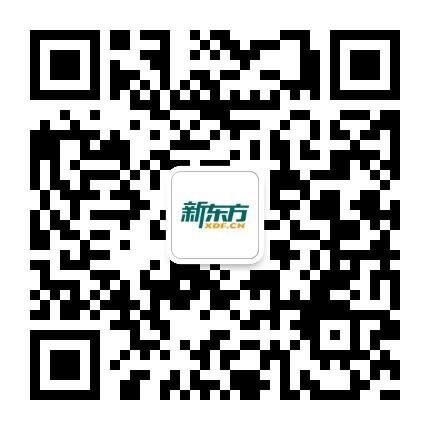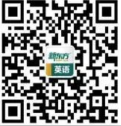内容简介
动词 “recognise” 和 “identify” 都可以表示 “认出(某个人、事物或问题)”。其中, “recognise” 还可以用来表示 “承认;认可、表彰” 的意思;“identify” 还可表示 “认出身份” 或 “指出问题”。听节目,学习近义词 “recognise” 和 “identify” 的区别。
欢迎你加入并和我们一起讨论英语学习的方方面面。请通过微博 “BBC英语教学” 或邮件与我们取得联系。我们的邮箱地址是 questions.chinaelt@bbc.co.uk
文字稿
(关于台词的备注: 请注意这不是广播节目的逐字稿件。本文稿可能没有体现录制、编辑过程中对节目做出的改变。)
Jiaying
Hello and welcome to Question and Answer of the Week. I'm Jiaying.
Sam
And I'm Sam. Hello!
Jiaying
本期 “你问我答” 节目要回答的问题来自一位微博网友,问题是这样的:
Question
请问一下,“recognise” 和 “identify” 的区别。
Jiaying
这个问题提得很好。在一些情况下,动词 “recognise” 和 “identify” 的用法很相似。下面, 我们先讲一下两个词之间的相似点,再来看它们各自的含义和用法。
Sam
Great idea! Let's do 'recognise' first. If you 'recognise' someone, it means you know them because you have seen or heard them before. It's possible you've never met them – like with a celebrity, for example – but you've seen them before.
Jiaying
“Recognise” 既可以用来表示 “认出(某人的面孔),听出(某人的声音)”,也可以表示 “认出、听出(某物)”。比如:因为你去过某处,所以 “recognise the place(认出这个地方)”;因为曾听见过,所以 “recognise the sound(听出这个声音)”;因为感同深受,所以 “recognise the feeling(领会这种感受)”。来听三个例句。
Examples
I hadn't seen my childhood friend for years, but I recognised him straight away.
(我多年未见儿时好友,但当时我一眼就认出了他。)
Don't you recognise this song? It's super famous.
(你听不出这是哪首歌吗?它可有名了。)
The doctor was able to quickly recognise her symptoms.
(医生很快就辨识出了她的症状。)
Jiaying
说完了 “recognise” 的第一个用法,来对比一下动词 “recognise” 和 “identify”。
Sam
To 'identify' in this context means 'to recognise someone or something and to say or prove it'.
Jiaying
没错,动词 “recognise” 和 “identify” 的相似之处是两者都有 “认出” 的意思,但区别在于 “identify” 所描述的对人或事物的了解程度要比 “recognise” 更深。也就是说,如果我们 “identify” 一个人,那我们不仅能 “recognise(认出)” 此人是谁,还能说出或证明此人的身份。动词 “identify” 还可以用来谈论 “在一群人中识别一个人” 的过程。
Sam
And, again, we can use it with things. So, we don't just know the thing, we can say or prove what the thing is, and separate it from other similar things. Let's hear some examples for 'identify' now.
Examples
Babies can identify their mother by her voice even when they're very little.
(婴儿在很小的时候就可以通过声音认出自己的妈妈。)
Marine biologists were able to identify the whale by its fin.
(海洋生物学家能够通过鲸鱼鳍来识别它。)
Police haven't been able to identify the criminal yet.
(警方还未能确定罪犯的身份。)
Jiaying
前面,我们介绍了 “recognise” 的第一个常见含义 —— “认出”。现在,说一说它的另一个含义。
Sam
'Recognise' can mean to accept that something is true or important or legal.
Jiaying
是的,在这种情况下,“recognise” 的意思和 “accept” 很相似,都表示 “接受,承认”,常用来谈论困难或严肃的话题。听两个例句。
Examples
I recognise that my behaviour was very bad yesterday, and I apologise.
(我承认我昨天的行为很糟糕,我道歉。)
They need to recognise the financial problems they're facing, or the business will have to close down.
(这家公司需要认识到自己所面临的财务问题,否则就要歇业了。)
Jiaying
接着,我们来说说动词 “recognise” 的第三个含义。“Recognise” 还表示 “认可(成就或成功),表彰,嘉奖”。
Sam
Yes, so if a person's achievements or successes are recognised, that person is shown approval or given praise for them.
Jiaying
这种表彰 “recognise” 常是 “(来自官方的、由具有权威性的个人或组织给予的)表扬”。来听三个例句。
Examples
Our company recognised our hard work by giving us all a raise.
(我们公司给所有人加薪,以表彰我们做出的辛勤工作。)
The King recognised her services to her country by giving her a medal.
(国王授予她一枚奖章以表彰她对国家的贡献。)
After many years, the actor's talent was finally recognised with an award.
(多年后,这位演员的才华终于得到了嘉奖。)
Jiaying
好了,讲了动词 “recognise” 的常见用法后,来仔细看看动词 “identify”。前面,我们介绍了动词 “identify” 的第一个含义 “认出身份,辨识出”。Sam,那它的第二个含义是什么呀?
Sam
If we 'identify' a problem, a need or a fact, we show that it exists.
Jiaying
原来是这样。而且我们经常需要经过思考、调查研究并花费时间才能 “identify a problem(指出问题)”、“identify a need(找出需要)” 或者 “identify a fact(确定事实)”。听三个用 “identify” 表达这个含义的例句。
Examples
The report identified some problems in our chain of production.
(这份报告指出了我们生产链中的一些问题。)
Scientists have been trying for years to identify the cause of the disease.
(多年来,科学家们一直在试图找出这种疾病的病因。)
To help you choose the next step in your career, you need to identify what your priorities are.
(为了帮助您抉择职业生涯中的下一步,你得确定有哪些需要优先考虑的事情。)
Jiaying
希望以上的讲解帮助大家分析了 “recognise” 和 “identify” 的重点用法和主要区别。
Sam
Thank you again for the useful question. Remember, you can send in your questions, too!
Jiaying
我们的微博账号是 “BBC英语教学”。你也可以发邮件给我们,邮箱地址是:questions.chinaelt@bbc.co.uk 谢谢收听 “你问我答” 节目。我是佳莹。
Sam
Until next time, bye-bye.
Jiaying
Bye, everyone.


 3342次下载
点击下载
3342次下载
点击下载
 2621次下载 点击下载
2621次下载 点击下载
 4734次下载 点击下载
4734次下载 点击下载
 1854次下载 点击下载
1854次下载 点击下载
 1391次下载 点击下载
1391次下载 点击下载
 1391次下载 点击下载
1391次下载 点击下载











